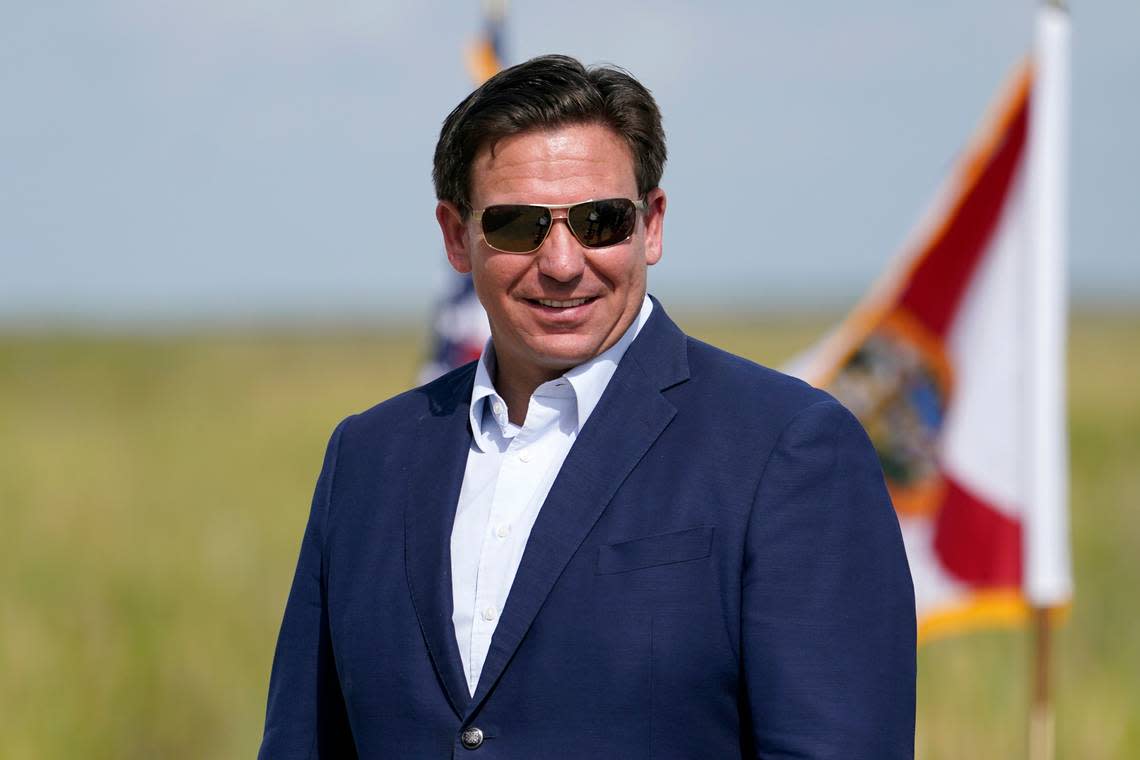It is not uncommon for governors to veto legislation. But no governor has used his veto with the same poise and purpose as Ron DeSantis. That goal was not just to do the right thing every now and then, but to show fellow Republicans in the legislature who’s boss.
In his final veto last week, DeSantis sounded the death knell for another priority of legislative leaders. It was a victory for a governor who established himself as the ubiquitous figure in state politics. It was also a win for taxpayers and local governments who risked paying for expensive lawsuits.
Senate Bill 620 would have wiped out the ability of cities and counties to govern themselves. The legislation allowed some companies to sue local governments to recover lost profits for up to seven years if the loss was the result of a local ordinance or citizens’ initiative.
This “pro-business” legislation was so vague it would open the floodgates to frivolous lawsuits—a consequence DeSantis alluded to in his veto. Local governments could rake in up to $900 million annually, which Florida TaxWatch says could drive up taxes on citizens and the same businesses.
“The bill’s broad and ambiguous language will lead to both unintended and unforeseen consequences and costly lawsuits,” DeSantis wrote.
This bill was the dream come true for economic interests that lobbied Tallahassee to prevent local governments from regulating everything from cruises to sunscreen to natural gas hookups, plastic straws and single-use plastic bags. It would have effectively put an end to many local environmental ordinances and even attempts to regulate bar hours and stop the sale of pets by unscrupulous puppy mills. That’s why the governor’s office has tried unsuccessfully to amend the bill to exempt rules that support animal welfare.
political tactics
Some may rightly see the irony of DeSantis’ veto against SB 620 after last year attacking and limiting local governments’ ability to respond to the COVID-19 pandemic. For example, he has forbidden them to impose mask mandates. DeSantis, for his part, wrote, “The better approach is to enact targeted preemption legislation” rather than a blanket preemption like SB 620.
As principled as DeSantis is, he is also calculating. This is the fourth time DeSantis has dismissed Senate President Wilton Simpson by killing part of his legislative agenda.
DeSantis previously vetoed a bill from Simpson and Florida Power & Light that would have curbed the expansion of rooftop solar. He ignored some of the $331 million in agricultural projects that Simpson was trying to include in the state budget — and which he would control if he were elected agriculture commissioner this fall. The governor also vetoed another Simpson-backed bill that would have forced the state to give farmers priority access to water from Lake Okeechobee. DeSantis and environmentalists say the bill would hurt the Everglades restoration, a priority he campaigned for in 2018.
This could be the governor keeping his campaign promises. But it is also a message to legislators who are out of step.
Earlier this year, Simpson and the Speaker of the House objected to DeSantis’ attempt to force them to pass a Congressional realignment card that favored Republicans. DeSantis vetoed the approved card lawmakers, forcing them to go back to Tallahassee to approve his plan. Politico reported in February that tensions between DeSantis and Simpson were high over the Senate’s reluctance to approve the governor’s high-profile priorities.
DeSantis is on a mission to shape Florida the way any governor would, and he’s on track to wield power like no other governor before him. Rogues and opponents are either tamed – or crushed.

